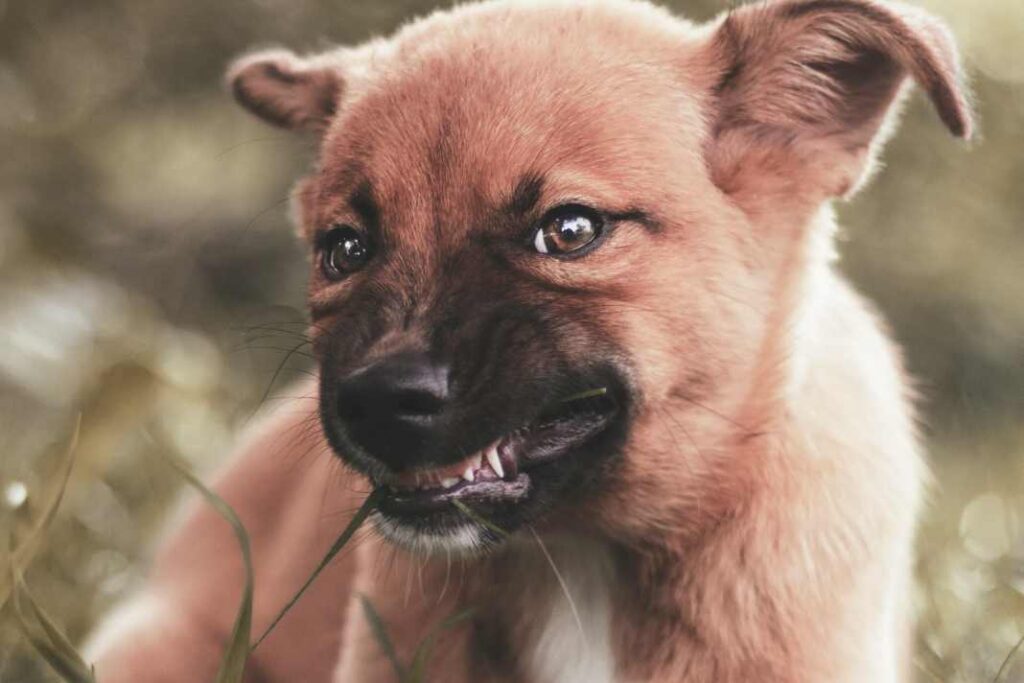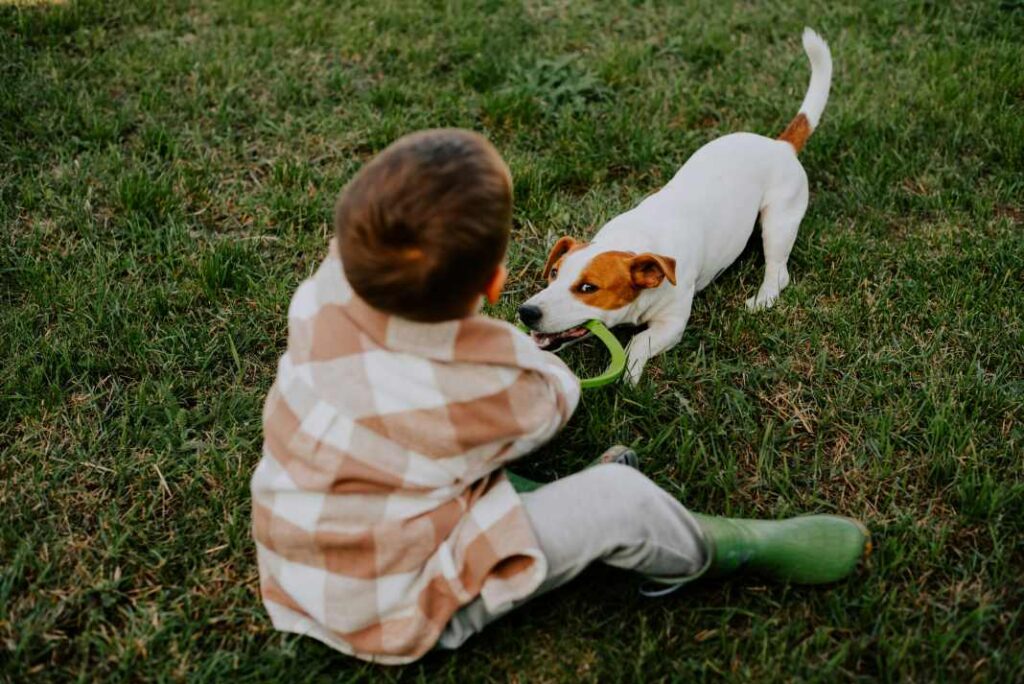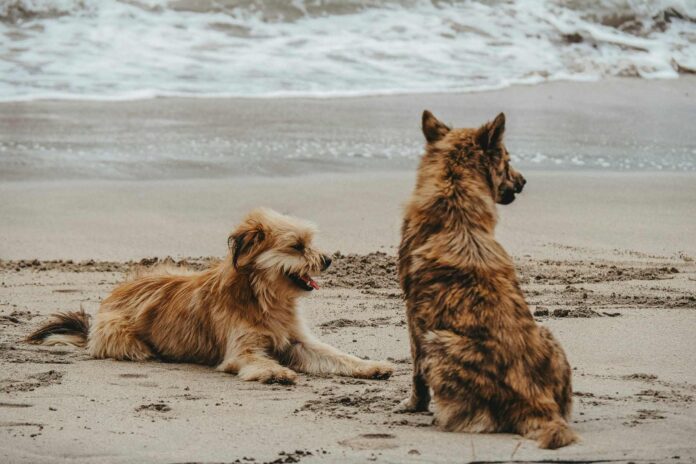Preventing Aggression: Socialization tips for your growing puppy – Learn the importance of early socialization, recognize signs of aggression, and discover effective training techniques to prevent aggression in puppies, ensuring a well-socialized and balanced companion.
Click here for Expert Videos to Stop Dog Behavioral Problems!
Importance of Early Socialization for Preventing Aggression in Puppies
Early socialization plays a pivotal role in shaping a puppy’s behavior and temperament. By exposing puppies to a wide range of stimuli, including different environments, people, and other animals, they learn to form positive associations rather than developing fear-based aggression later in life.
This critical period of puppyhood, typically up to about 14 weeks of age, is when puppies are most adaptable and open to new experiences. Proper socialization during this time can result in a well-adjusted adult dog that feels comfortable in various situations, which significantly reduces the likelihood of behavioral problems such as fear, anxiety, and aggression.
Unfortunately, puppies that miss out on these early socialization opportunities may exhibit heightened fear responses to unfamiliar situations or beings, making it challenging to modify these behaviors later on.
For instance, a puppy that hasn’t been exposed to children during its early months may react aggressively out of fear when encountering them as an adult. Therefore, it’s crucial to take advantage of this formative period to lay a strong foundation for a confident and sociable dog.
Recognizing Signs of Aggression in Puppies
Understanding and recognizing the early signs of aggression in puppies is essential for timely intervention. Aggression can manifest through body language such as stiff posture, raised hackles, and direct stares, which signal the puppy’s discomfort or perceived threat. An early warning sign of aggression can also include growling.
While many pet owners may find this behavior alarming, it’s important to understand that growling is a form of communication, indicating that the puppy is feeling threatened or uncomfortable.
Interpreting these signs within the context they occur is crucial for addressing the underlying causes of aggression.
For example, a puppy that growls when its food bowl is approached is displaying resource-guarding behavior, which requires specific management strategies to prevent escalation. Recognizing these behaviors early on allows pet owners to intervene appropriately and seek professional help if necessary.

Effective Tips for Socializing Your Puppy with Other Dogs and People
Socializing your puppy with other dogs and people requires a careful and considered approach. Controlled exposure to new environments and beings is essential for building a puppy’s confidence. This can be achieved through puppy classes, controlled playdates, and regular walks in different locations.
Rewarding calm and friendly behavior with treats, toys, and verbal praise reinforces positive interactions and encourages your puppy to associate new experiences with positive outcomes.
Gradually increasing the complexity of socialization experiences ensures that your puppy is challenged without becoming overwhelmed. For instance, starting with calm, adult dogs before introducing more playful or energetic dogs can help prevent negative experiences that could lead to fear or aggression. These positive early experiences are crucial for developing a sociable and well-adjusted adult dog.
Training Techniques to Prevent Aggression in Puppies
Positive reinforcement training is a powerful tool in preventing aggression and reinforcing desirable behaviors in puppies. This method focuses on rewarding behaviors you want to see, such as calmness and friendliness, rather than punishing undesirable behaviors. Consistency in training routines and expectations helps establish clear boundaries for puppies, reducing confusion and potential aggression triggers.
Desensitization techniques, which involve exposing puppies to potentially triggering stimuli at a safe distance, can gradually help them overcome fear and aggression.
For example, if a puppy shows signs of aggression towards strangers, controlled exposure to new people from a distance, combined with positive reinforcement for calm behavior, can be effective.

Professional Guidance for Addressing Aggression in Puppies
When dealing with aggression in puppies, seeking professional guidance from certified dog trainers or behaviorists is highly recommended, especially if the aggression is severe or persistent.
These professionals can provide personalized training plans tailored to address specific issues, leveraging their expertise in behavior modification techniques and specialized interventions.
Collaborating with a professional ensures a comprehensive approach to managing aggression, addressing both the behavioral responses and the underlying causes.
For example, a behaviorist can help identify triggers of aggression in a specific puppy and develop a customized plan that includes positive reinforcement, desensitization, and controlled socialization exercises.
Diverse Exposures to Prevent Aggression in Puppies
Exposing puppies to a wide variety of experiences is key to preventing fear-based aggression. This includes different textures, sounds, and environments, all of which help build resilience in puppies.
Socializing puppies with a range of dog breeds and sizes is also beneficial, teaching them appropriate play behaviors and helping them understand different communication signals, thus reducing conflict.
Regular opportunities for positive interactions with unfamiliar people and animals reinforce social skills and promote confidence.
For instance, scheduling playdates with other vaccinated puppies and introducing your puppy to friendly adult dogs can provide valuable learning experiences.
Conclusion: Socialization Tips for Your Growing Puppy
Early socialization is fundamental to developing a well-behaved, confident, and happy dog. By implementing positive reinforcement techniques, maintaining consistent training practices, and seeking professional guidance when needed, pet owners can effectively prevent and address aggression in puppies.
A well-socialized puppy not only displays good manners and behavior but also fosters a strong bond with their human family, significantly enhancing the quality of life for both the dog and their owners.
Related Articles:
Unlocking the Benefits of Early Socialization
Transform Your Dogs Behavior with The Online Dog Trainer: A Guide to Effective Training




